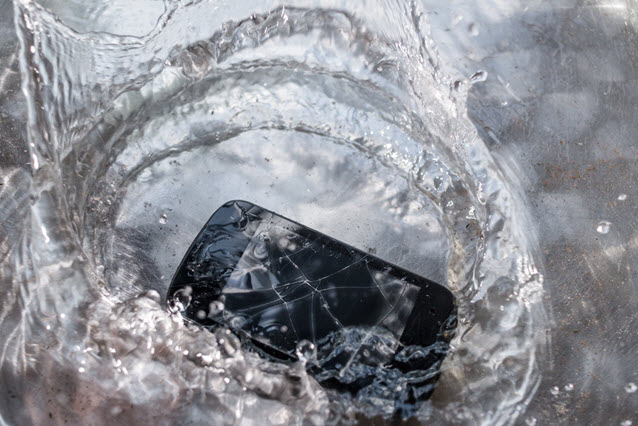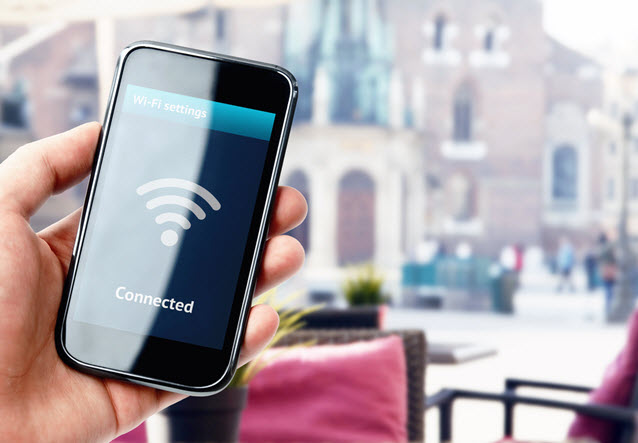
There was a time when cell phones were our own private connection to friends and family. Nobody had this number unless you gave it to them, and you didn’t have to worry about telemarketers or other organizations calling you. Well, today it’s a different story. And chances are, you receive several unsolicited calls on your cell phone weekly. They come at all times of the day and interrupt your day, your meals, even your sleep! But fortunately, there's an easy way of dealing with these unwanted phone calls: block them! Ways to Block Unwanted Cell Phone Calls 1. Get on the “Do Not Call" registry. If random phone calls are starting to get under your skin, add your number to the National Do Not Call Registry. This notifies telemarketers that you don’t want to be contacted. Not only can you register your cell phone, you can also register your home phone. Unfortunately, adding your number to the registry doesn’t block all unwanted calls. You may still receive calls from charities or political organizations. Even so, you’ll likely see a significant reduction… Read more

Your cell phone holds your contacts, your calendar, your financial account information and so much more. So if you drop your cell phone in a pool or if it comes in contact with another water source, chances are you'll panic right away. Cell phones are electronic devices and, like any electronic device, water is the enemy. It doesn’t matter how careful you are, mistakes happen. With quick action, however, you can potentially revive your phone and prevent permanent damage. Before getting started, remove your phone from water as quickly as possible. The longer it remains submerged, the greater the risk of damage. Quick removal can prevent water from seeping into the phone’s tiny crevices. Once it's out of the water, immediately turn off the phone. Even if the phone appears to be working properly, turning it off can prevent short circuiting and further damage. Once you've got those crucial steps out of the way, the protective steps can begin. 1. Remove the protective casing. After removing the phone from water and turning it off, remove any protective casing from around the phone. This… Read more

When you think of something being hacked, you might think of a home computer or network and never imagine someone hacking into your cell phone. But cell phones hold all the power, all the data and all the information that computers hold, making them prime targets for hacking and putting your accounts and passwords at risk. If you use your cell phone to check email, financial accounts, download apps or more, there's a chance your information could be breached. Here are a few tips to protect your information and keep it out of the wrong hands. 1. Keep your phone’s operating system up-to-date. Just like your computer, your cell phone has an operating system that needs periodic upgrades. Go into your phone's settings and you’ll see notifications for updates as soon as they're made available. Updates vary, but might include fixes for common bugs or glitches and might strengthen your phone’s security features. If you ignore these or have an out-of-date operating system, you be more susceptible to hackers. And with your phone hacked, someone could access your name, account numbers and even… Read more

Autumn cleaning just doesn't have the same ring! You might not associate spring cleaning with your cell phone, but just like your home, your phone can get packed with digital clutter and unnecessary files that slow it down and make it less easy to use. That's when a good cleaning is in order. Cell phones hold a lot of valuable information, including financial apps, restaurant apps, games, social media accounts, news digests and more. Depending on how often you add new apps, finding anything on your phone can become nearly impossible. Your home screen is probably a mess and the more you add, the harder it can be to disconnect. This is why it's crucial to periodically thumb through your phone and clean it out. Getting rid of apps you never use, photos you have backed up elsewhere and otherwise unnecessary information can open the door to a more simplified digital life - something we could all use. Don't know where to start? We've got you covered. 1. Get rid of old photos. Your phone can be a treasure trove of memories. You… Read more

Using your cell phone as a hotspot is convenient, especially if you need internet access on a computer or tablet when you're away from home. With your mobile hotspot, you don’t have to search for Wi-Fi and, depending on your mobile plan, you might be able to connect five to 10 mobile devices simultaneously. A hotspot is your own secured network, which offers more protection than using a public network. While this is a reliable and convenient feature of a phone plan, there are a few things you should know about using your cell phone as a mobile hotspot. 1. Does it come with your cell phone plan? Keep in mind that not every cell phone plan includes a mobile hotspot. Contact your cell phone provider or review your current data plan to see if this option is available to you. If you don’t currently have a hotspot enabled, perhaps you can add it for an additional fee per month, or upgrade to a plan that includes it. For example, under Sprint’s Unlimited Freedom plan, you can receive 10 GB… Read more
- « Previous Page
- 1
- …
- 16
- 17
- 18
- 19
- 20
- …
- 23
- Next Page »